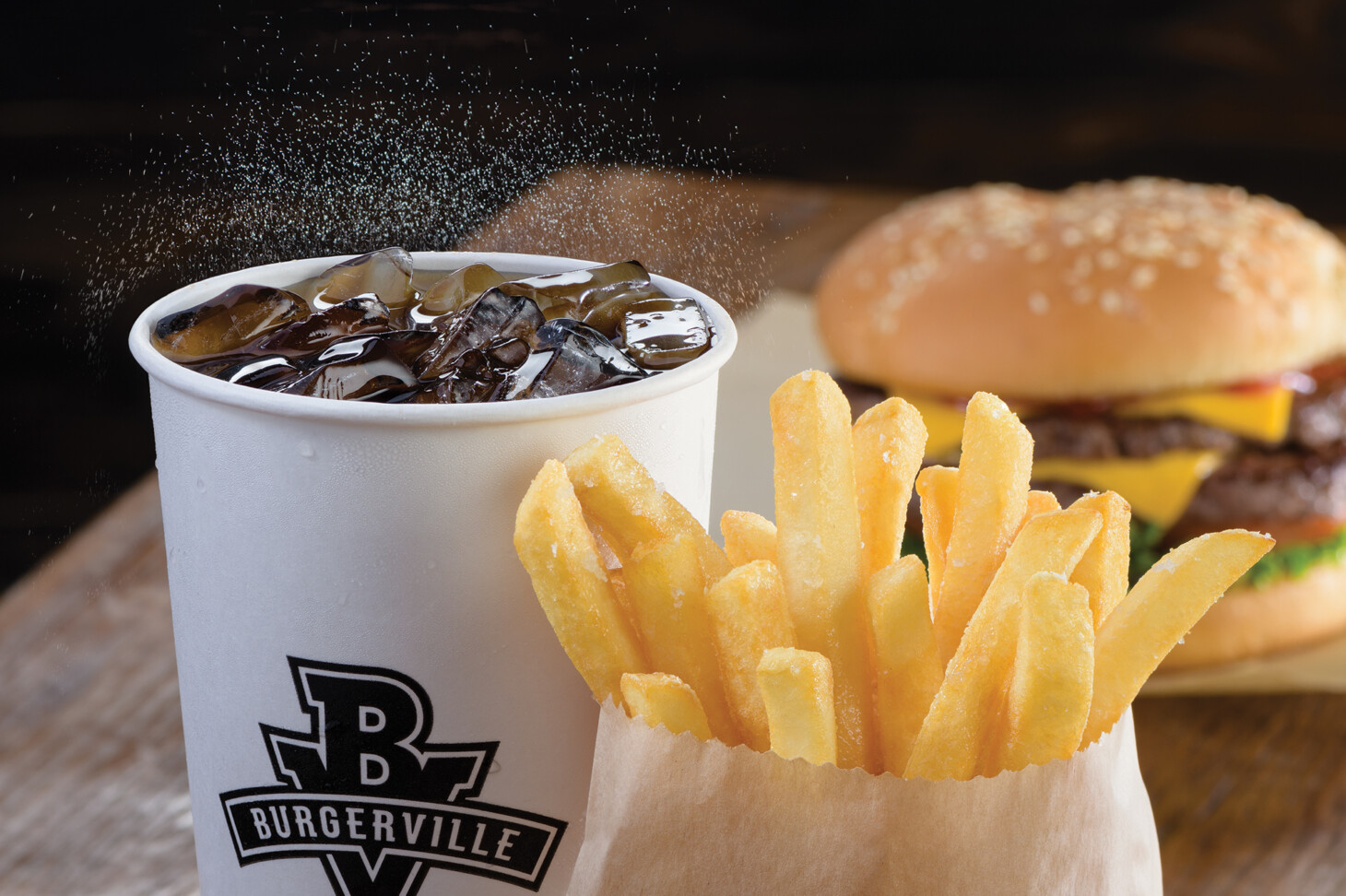News, articles, and interesting stuff from the College of Business
Burgerville Finds Sales Growth after Students Analyze Customer Data
An example of how an Oregon State MBA gives students an edge through hands-on projects involving real business problems with actual companies.

By Rebecca Barrett
‘Would you like fries and a drink with that?’
It’s a question anyone who has ever ordered a meal at a fast-food restaurant has been asked.
Then a group of MBA students at Oregon State University scrutinized this everyday business transaction. They found a way for a popular Pacific Northwest restaurant chain to transform its ordering process into a business opportunity that they hope will result in increased guest frequency, as well as customer satisfaction.
It’s an example of how an Oregon State MBA gives students an edge through hands-on projects involving real business problems with actual companies.
The student project between OSU and Burgerville came about as the restaurant prepared to open a new location in Corvallis in 2017. Restaurant executives were interested in what they could learn from analytic data of orders.
In an age of big data, companies look to Oregon State’s MBA program for its analytical strength, from accounting to supply chain to marketing.
Like many corporations, Burgerville has limited in-house expertise in business analytics, which falls outside the company’s core competency. Intrigued with the prospect of using big data, Burgerville sought a fresh, new view from outside company headquarters, said Beth Brewer, Senior Vice President of Operations.
“Students are learning new things,” Brewer said. “They also bring so much talent, perspective and training development.”
Company officials met with the College of Business to discuss a student project for an MBA capstone class. Projects identify a business problem, and help students bridge that challenge with the technical skills they have acquired in the business program.
Two teams of 10 students were assigned to work with Burgerville. They were given access to the company’s IT infrastructure to study data from customer orders. One group focused on menu item combinations. The other group integrated community demographics from store locations to identify targeted product promotions.
The group that looked at menu combinations noticed that guests seemed to want to bundle items together to make a complete meal. Although they had the option to purchase fries and a drink, data showed that customers were not adding these items.
The students suggested it might be a missed opportunity. They recommended that Burgerville consider a guest-connect strategy to directly present customers with the option to bundle fries and a drink.

The solution was simple.
“Why not offer them what they already want?” Brewer said.
An independent analysis by a different marketing firm came to the same conclusion. Based on the student recommendation, Burgerville tested the deal on its mobile ordering platform and saw that bundle orders increased 25 percent. The change also resulted in improved customer satisfaction, measured in a 19 percent increase in guests returning within a set time.
Based on the success of mobile testing, Burgerville launched the guest-connect strategy across the whole company in spring 2018. Brewer said the change has shifted Burgerville’s ordering process from transactional to conversational.
“It’s not about sales. It’s about service,” Brewer said. “It’s a way to open the conversation, and not just take the order as it’s been given.”
Shali Lan participated in the Burgerville student project. She said it taught her how to quickly determine what is most important. She and the other students used independent demographic data to learn more about Burgerville’s customers to better understand their purchases.
“We always focus on what’s the most valuable question to ask,” Lan said. “Think broad, then brainstorm and narrow it down to the most relevant topics.”
Lan said Oregon State’s MBA program is well-designed, giving students an opportunity to use the analytical tools they learn. These skills are in high demand, and Lan received more than 20 job offers before graduating. She now works as an advisory consultant at the international professional services firm Deloitte in Portland.
Associate Professor Bin Zhu with Oregon State College of Business oversaw the Burgerville student project. She said projects provide real experience for students.
“They need to present, persuade and talk with people to identify the business problem,” she said.
Students are required to demonstrate they understand how to navigate the business landscape. For example, Burgerville initially only provided access to some data. So the students had to ask for additional information. It was a good lesson in persistence and persuasion.

“It’s not only about sitting in front of the computer and doing your job,” Zhu said. “It’s also about being able to talk to other people and get what you need.”
Zhu said almost every aspect of business requires analytic skills. Oregon State’s MBA program prepares students for this new business world.
“The key here is for our students to be successful in anything they work with,” she said.
Student projects tie it all together.
“When they propose the solution, it doesn’t matter how good the mathematical result is,” Zhu said. “You have to answer, what does it mean to the business?”